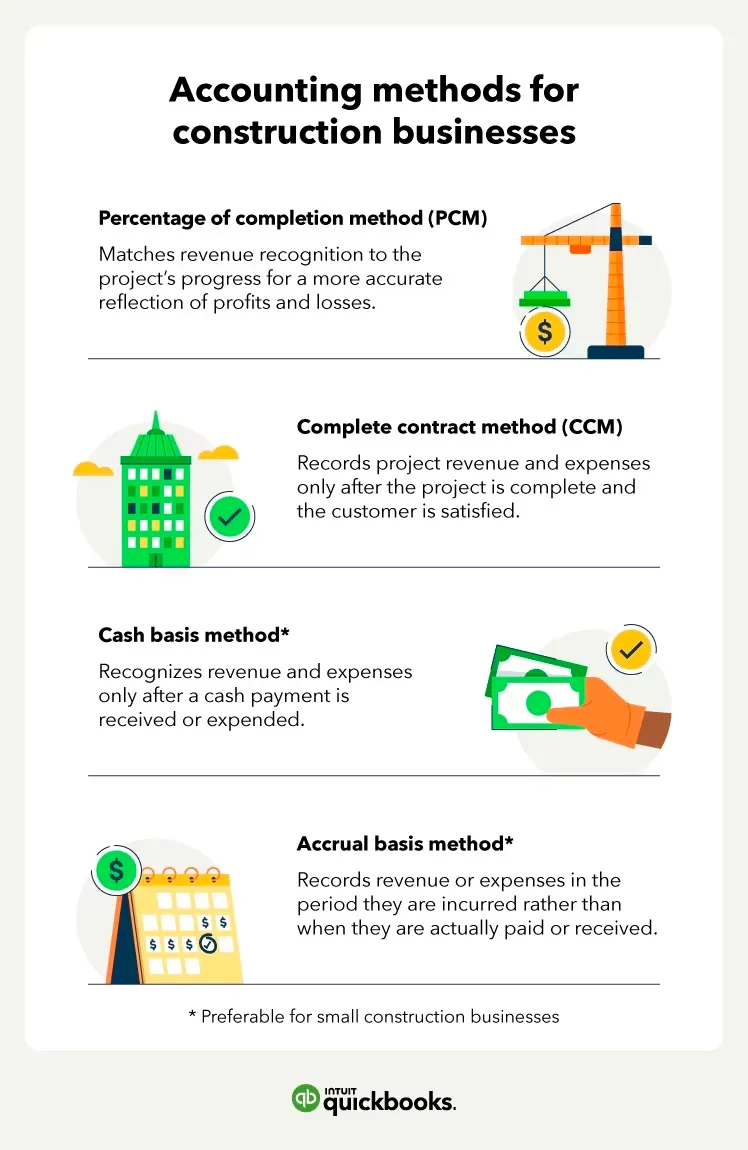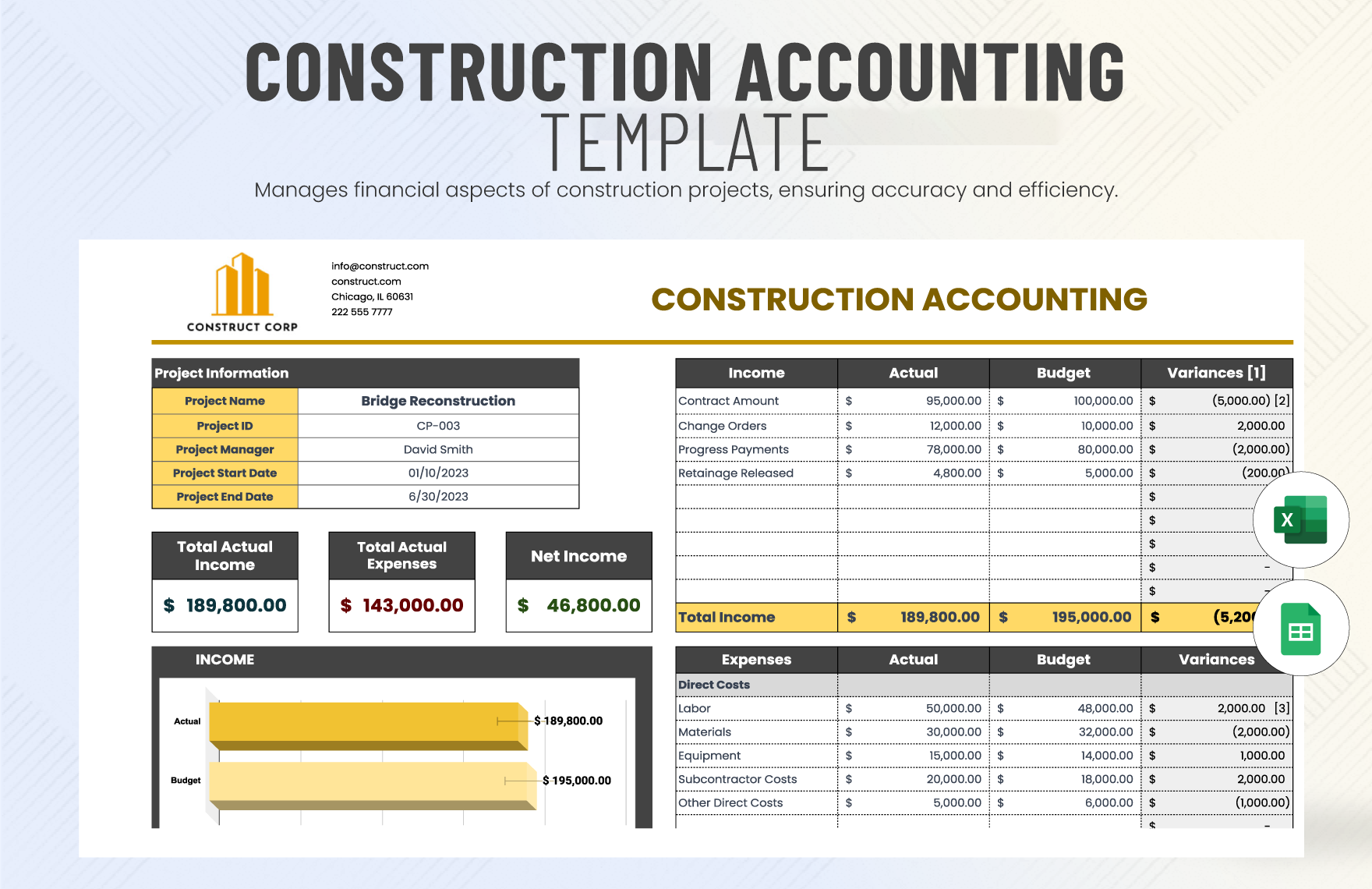Construction Accounting: How to Maintain Accurate Records and Improve Cash Flow
Construction Accounting: How to Maintain Accurate Records and Improve Cash Flow
Blog Article
Key Solutions Offered in Construction Audit to Improve Financial Oversight
In the world of building and construction accountancy, vital services such as project cost evaluation, budget plan monitoring, and cash money circulation evaluation play an essential role in improving monetary oversight. Recognizing these subtleties can dramatically affect the performance of economic oversight in building tasks.
Task Price Estimate
Reliable task expense evaluation is an essential part of effective building and construction accounting solutions, as it straight affects budgeting and monetary planning (construction accounting). Accurate cost estimates give a comprehensive overview of the economic needs for a building job, enabling stakeholders to make informed choices relating to resource allotment and project usefulness
A thorough price evaluation process encompasses numerous aspects, including labor, products, devices, overhead, and backups. By examining historical information and present market trends, building and construction accounting professionals can establish practical quotes that reflect real project prices. This analytical approach not just aids in safeguarding financing yet likewise enhances openness and accountability amongst all parties entailed.
Furthermore, specific expense estimation works as a foundation for tracking and controlling costs throughout the project's lifecycle. By establishing a clear standard, building accounting professionals can identify disparities between approximated and real expenses, permitting prompt changes and treatments.
Ultimately, effective task cost estimation not just assists in smoother project execution yet also enhances the overall monetary wellness of building and construction companies, guaranteeing they remain competitive in a significantly vibrant industry. This calculated strategy underscores the significance of skilled experts in supplying exact and dependable cost estimates.
Budget Plan Administration
In the world of building and construction accounting services, budget plan administration plays a crucial duty in ensuring that projects stay economically feasible and on the right track. Reliable spending plan monitoring entails the organized preparation, surveillance, and regulating of task prices to line up with monetary goals. It begins with the development of a comprehensive budget plan that precisely reflects the anticipated costs of labor, materials, equipment, and expenses based upon detailed job expense estimation.
Once the budget is developed, recurring surveillance is necessary. This consists of regular assessments of real expenses against the budgeted numbers, enabling timely identification of discrepancies. By applying devices and software application tailored for building and construction accountancy, project managers can generate real-time records that promote educated decision-making.
Additionally, proactive budget administration allows stakeholders to adjust monetary allotments and sources as needed, promoting adaptability in action to unforeseen obstacles. This versatility is essential in the building and construction market, where project ranges can frequently transform. Ultimately, durable budget monitoring not only strengthens monetary liability however additionally improves total project efficiency, ensuring effective completion within the designated economic specifications.
Capital Evaluation
Capital analysis works as an important part of building audit, enabling job supervisors to keep a clear understanding of the inflow and outflow of funds throughout the task lifecycle. This analytical process permits the recognition of potential cash lacks or excess, empowering managers to make educated choices concerning budgeting and resource allotment.
By carefully tracking cash inflows from customer payments, finances, and various other revenue sources, together with checking discharges such as labor, products, and overhead expenses, project managers can create a detailed capital projection - construction accounting. This projection not only aids in forecasting future financial positions but likewise assists in determining patterns that may impact project practicality
Regular capital evaluation assists in timely interventions, permitting task managers to deal with financial obstacles prior to they intensify. This positive approach can mitigate threats connected with delayed settlements or unanticipated costs, ultimately bring about even more successful project conclusions. Moreover, effective capital management adds to preserving solid relationships with subcontractors and distributors by guaranteeing prompt payments.
Basically, cash money flow evaluation is a vital device in building accountancy, driving financial security and functional efficiency throughout the duration of building projects.
Regulatory Conformity Assistance
Regulative conformity support is necessary for construction companies browsing the complex landscape of market regulations and requirements. The construction market undergoes a myriad of local, state, and federal guidelines, consisting of safety requirements, labor regulations, and ecological guidelines. Non-compliance can lead to substantial penalties, delays, and reputational damage.
A durable conformity support system helps firms remain educated concerning relevant policies and makes certain that they implement necessary policies and procedures. This includes tracking modifications in regulation, giving training for employees, and carrying out routine audits to examine conformity degrees. Building and construction accounting professionals play a crucial role in this process, supplying experience to interpret regulations and align financial practices accordingly.
Moreover, regulatory compliance assistance includes the preparation and submission of required documentation, such as tax filings and reporting for labor standards. By developing an aggressive conformity method, building firms can reduce dangers associated with non-compliance, enhance functional performance, and promote a culture of accountability.
Inevitably, reliable regulative conformity support check out this site not only safeguards a building firm's financial wellness however also strengthens its online reputation in the market, positioning it for sustainable growth and success.

Financial Coverage and Insights
While navigating the intricacies of the construction market, accurate monetary reporting and informative evaluation are important for educated decision-making. Building tasks frequently include significant funding financial investment and fluctuating expenses, making it essential for stakeholders to have accessibility to timely read here and clear monetary information. Comprehensive monetary records, consisting of profit and loss statements, cash money circulation estimates, and annual report, provide a snapshot of a firm's financial wellness and efficiency.
In addition, tailored insights acquired from these reports aid supervisors identify trends, examine task productivity, and make strategic modifications to enhance functional performance. Key performance signs (KPIs) certain to building and construction-- such as task margins, labor prices, and overhanging proportions-- offer valuable benchmarks for assessing success and forecasting future efficiency.
Furthermore, routine economic coverage allows compliance with contractual responsibilities and promotes transparency with investors and stakeholders. By leveraging advanced bookkeeping software application and data analytics, building firms can enhance their economic oversight, allowing them to browse uncertainties much more efficiently. Ultimately, robust economic coverage and workable insights empower building and construction firms to make educated decisions that promote development and sustainability in an extremely open market.
Conclusion

In the world of construction bookkeeping, crucial solutions such as job expense estimate, budget management, and money circulation evaluation play an essential role in enhancing monetary oversight. Eventually, robust budget plan management not only reinforces monetary responsibility however likewise improves total task efficiency, making certain effective conclusion within the assigned monetary specifications.

Report this page